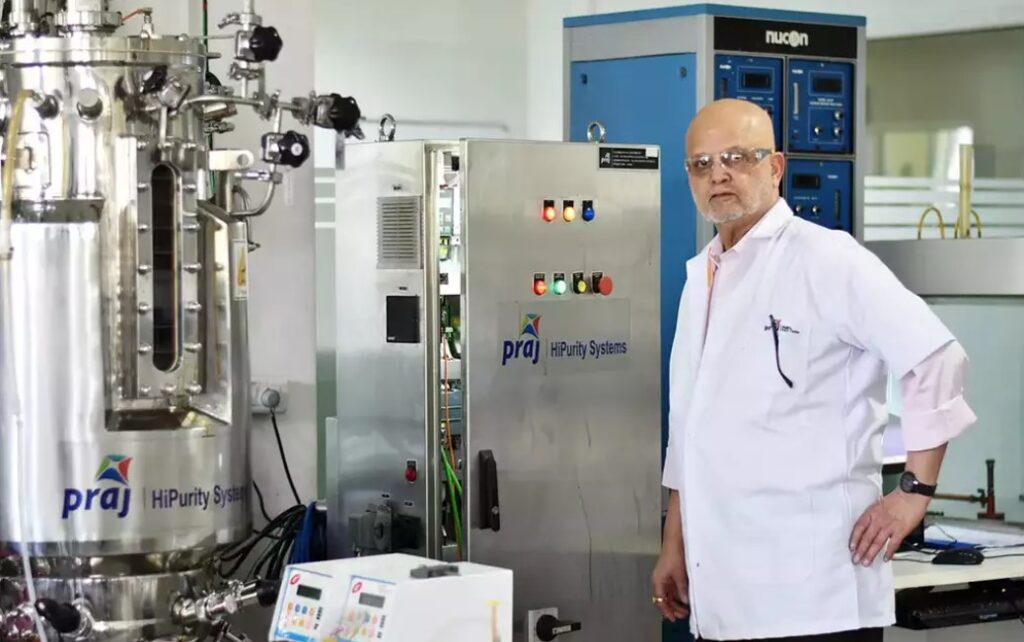74-year-old Pramod Chaudhari is known as the Ethanol Man of the India. In recent years, the global automotive industry has been witnessing a surge in the development and adoption of electric vehicles (EVs) as a means to combat climate change and reduce greenhouse gas emissions. However, amidst the electric vehicle frenzy, a prominent voice in India is advocating for an alternative approach. The man leading this charge is the Ethanol Man of India, who believes that the future lies not in EVs, but in flex-fuel vehicles that can run on a blend of gasoline and ethanol. In this article, we explore the rationale behind this perspective and delve into the potential benefits of flex-fuel vehicles for India’s transportation sector. Also, visit Industrial Front India for more information.

What is the Vision of the Ethanol Man of India? Read Everything!
Mr. Abhinav Gupta, affectionately known as the Ethanol Man of India, has long been a proponent of utilizing ethanol as a sustainable fuel source. He argues that while electric vehicles do offer certain advantages, they face significant challenges in terms of high upfront costs, limited charging infrastructure, and the environmental impact associated with the production and disposal of batteries. Instead, Mr. Gupta believes that embracing flex-fuel vehicles presents a more practical and immediate solution for India’s evolving mobility needs.
The Advantages of Flex-Fuel Vehicles:
- Reduced Carbon Footprint: One of the key benefits of flex-fuel vehicles is their potential to significantly reduce carbon emissions. Ethanol, a renewable biofuel derived from sources such as sugarcane, corn, or cellulosic materials, has a lower carbon content compared to traditional gasoline. By blending ethanol with gasoline, flex-fuel vehicles can reduce greenhouse gas emissions and contribute to mitigating climate change.
- Energy Security and Domestic Production: India, like many countries, heavily relies on imported oil to meet its transportation needs. Embracing flex-fuel vehicles and promoting the production of ethanol locally can enhance energy security by reducing dependence on foreign oil. India has vast agricultural resources that can be utilized to produce ethanol, thereby boosting rural economies and reducing the outflow of foreign currency.
- Transitioning with Existing Infrastructure: Unlike the infrastructure overhaul required for electric vehicles, flex-fuel vehicles can utilize existing gasoline infrastructure. This minimizes the need for substantial investments in charging stations and grid upgrades, making the transition more feasible and cost-effective.
- Flexibility and Consumer Choice: Flex-fuel vehicles offer drivers the flexibility to choose between gasoline and ethanol blends based on availability, price, and personal preferences. This freedom of choice can be particularly advantageous in a country like India, where accessibility to charging infrastructure and long charging times can still be significant barriers to widespread EV adoption.
- Job Creation and Economic Growth: The shift towards a biofuel-based transportation system would lead to the creation of numerous jobs in the agriculture and ethanol production sectors. This growth would provide economic opportunities, especially in rural areas, and contribute to overall sustainable development.
Challenges and the Way Forward:
While flex-fuel vehicles offer promising benefits, several challenges need to be addressed for their successful adoption. These include ensuring an adequate and consistent supply of ethanol, setting up a robust distribution network, and creating awareness among consumers about the advantages of flex-fuel vehicles.
To accelerate the transition towards flex-fuel vehicles, the Ethanol Man of India emphasizes the importance of government support through favorable policies, incentives for ethanol production, and the establishment of a comprehensive regulatory framework.
Conclusion:
While electric vehicles continue to dominate headlines and capture the imagination of the public, the Ethanol Man of India, Mr. Abhinav Gupta, believes that flex-fuel vehicles represent a pragmatic and viable solution to India’s transportation challenges. By embracing ethanol as a sustainable fuel option, India has the potential to reduce its carbon footprint, enhance energy security, and build a brighter future.
